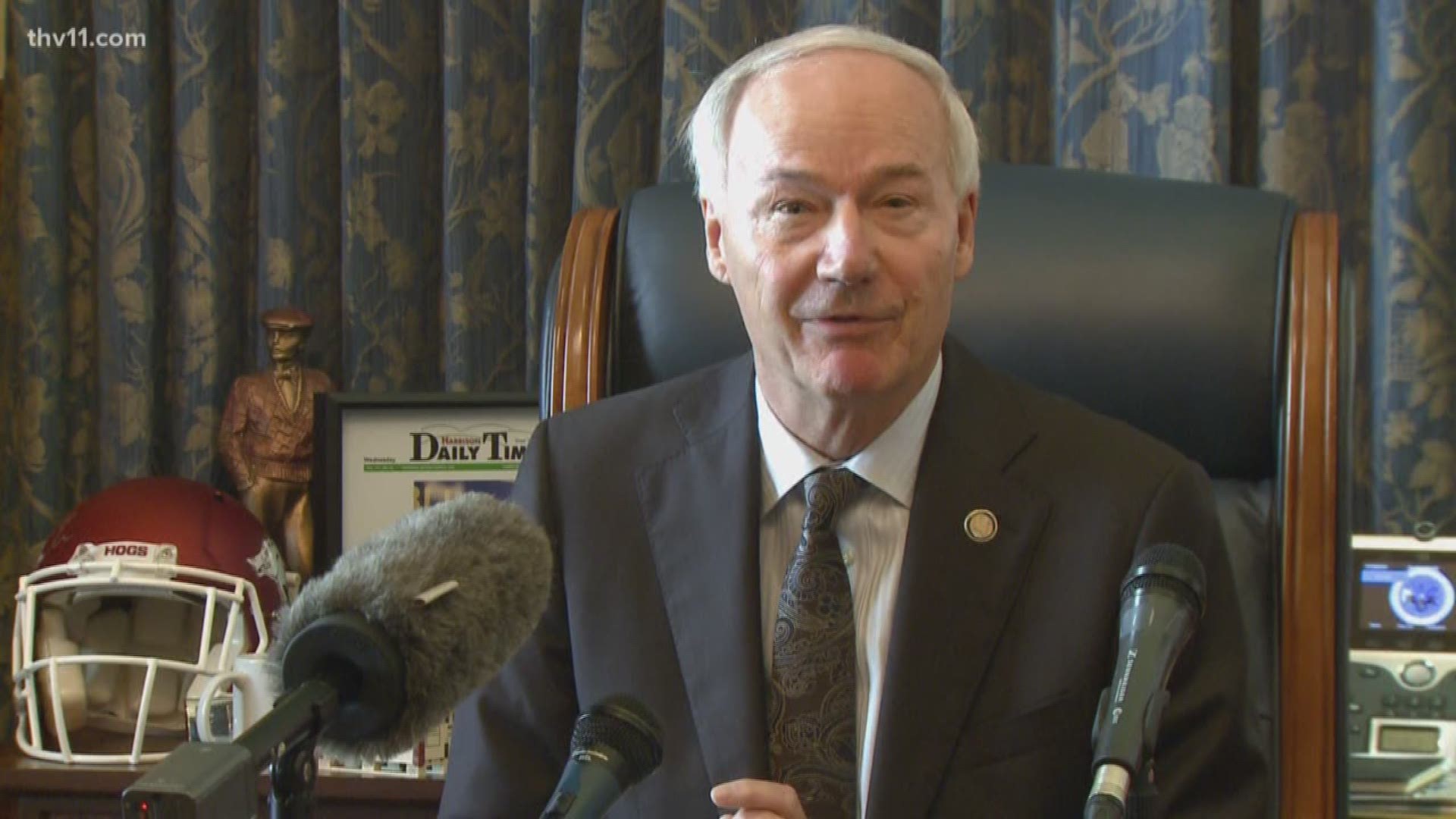LITTLE ROCK, Ark. — Gov. Asa Hutchinson (R-AR) shared his thoughts Monday on plans announced by the Arkansas Board of Education for how to reconstitute the Little Rock School District when it exits a state takeover in 2020.
The framework drew criticism over the weekend from advocates hoping for the return of an elected local school board for the way it retains a state role with schools categorized as needing intensive support.
After the news conference, it's clear the governor and advocates don't see eye-to-eye on defining "local control."
"It is important that we continue to provide intensive state support to the Little Rock School District," the governor said. "There are those who want the state to abandon its constitutional and moral responsibility to its students. The state Board of Education made it clear that we will not do that."
"I think the city is more ready and more united than we have ever been," said Ali Noland, a parent of a child in an LRSD elementary school from the Hillcrest neighborhood.
The two sides of the debate over the district boil down to this: the state says there is still work to do; local leaders say "thanks, we got it from here."
For Gov. Hutchinson, the state Board of Education has a constitutional obligation to keep its hand in the LRSD.
Five years after voting to take over the district because six schools were in academic distress, the state has to put forward a plan to either annex, consolidate, or reconstitute the 48 schools.
The first two options are not possible because of long-running desegregation orders. That led the board to define a third way last Friday.
Schools in the district will be divided into three categories. Schools that are doing fine and schools that are changing, like the soon-to-be-built Southwest High, will be run by the local board. Schools that are still failing will take direction from something else.
For advocates, those dividing lines echo a troubled past, when the city's Central High School needed National Guard troops to escort black students to class.
"It gives local control to the part of that district that is more affluent, and frankly, whiter," Noland said. "The communities that have kids that would not be given local control will be overwhelmingly people of color."
"I absolutely reject the proposition that this is a re-segregation of the Little Rock School district," said a bristling governor, while pointing to close the troubled J.A. Fair and McClellan high schools. "These two schools are going to be combined in the new Southwest High School. My personal opinion is that that is important for new energy of the new high school to be brought under the direction of the newly elected school board."
But no matter the demographics, advocates say it's undemocratic, with those would-be representatives kept from having a say over things like union contracts and curricula.
"There's no reason to say, 'we're giving you back this district, here's local control, but you don't get to decide this thing,'" Noland said.
The governor sidestepped questions over a Friday board proposal to no longer recognize or negotiate with the teachers' union, the Little Rock Education Association.
The board tabled that motion and the governor agreed they should get more public input on the matter. They meet again in October, when the final set of test scores for the district are expected to be announced.

